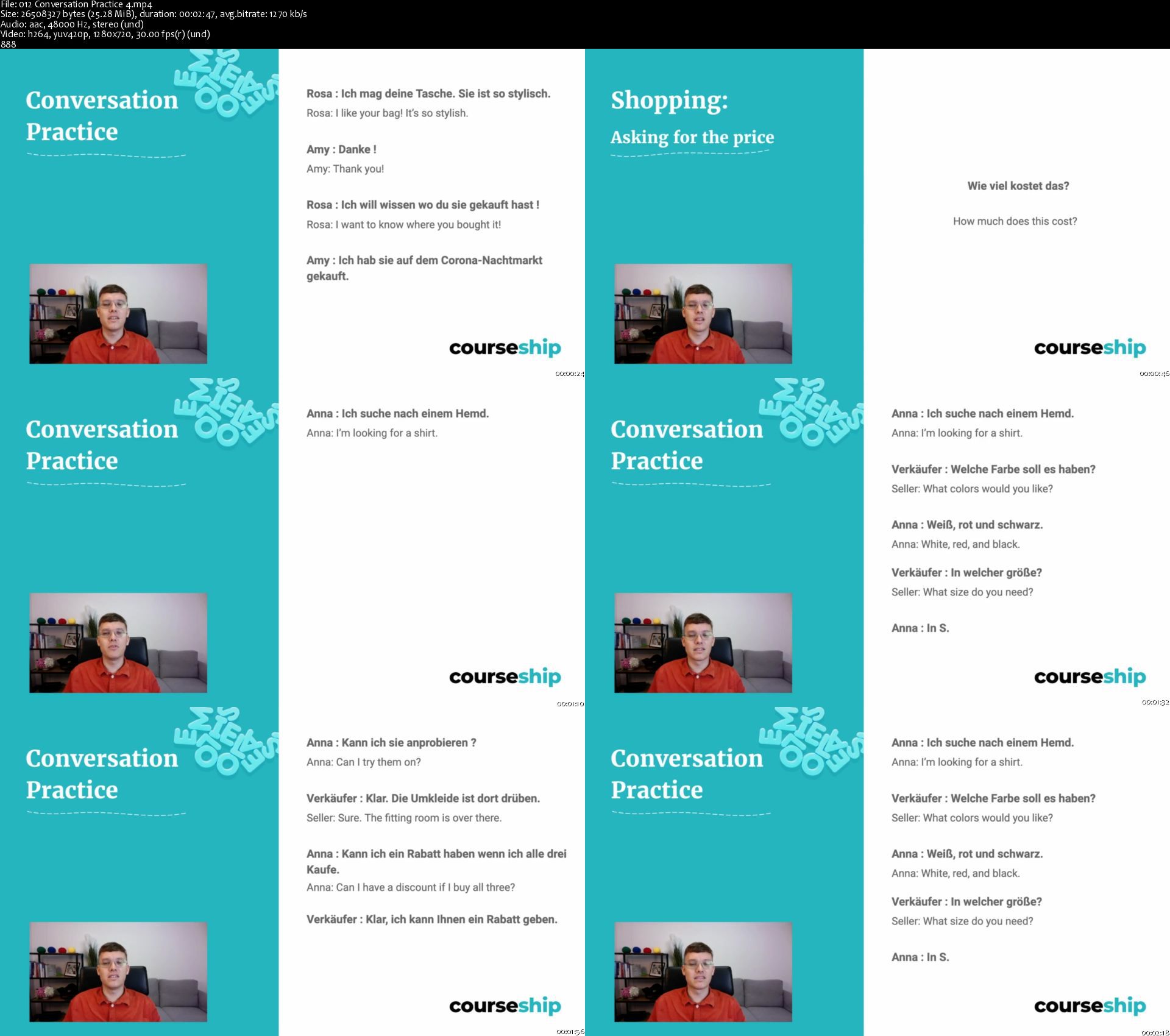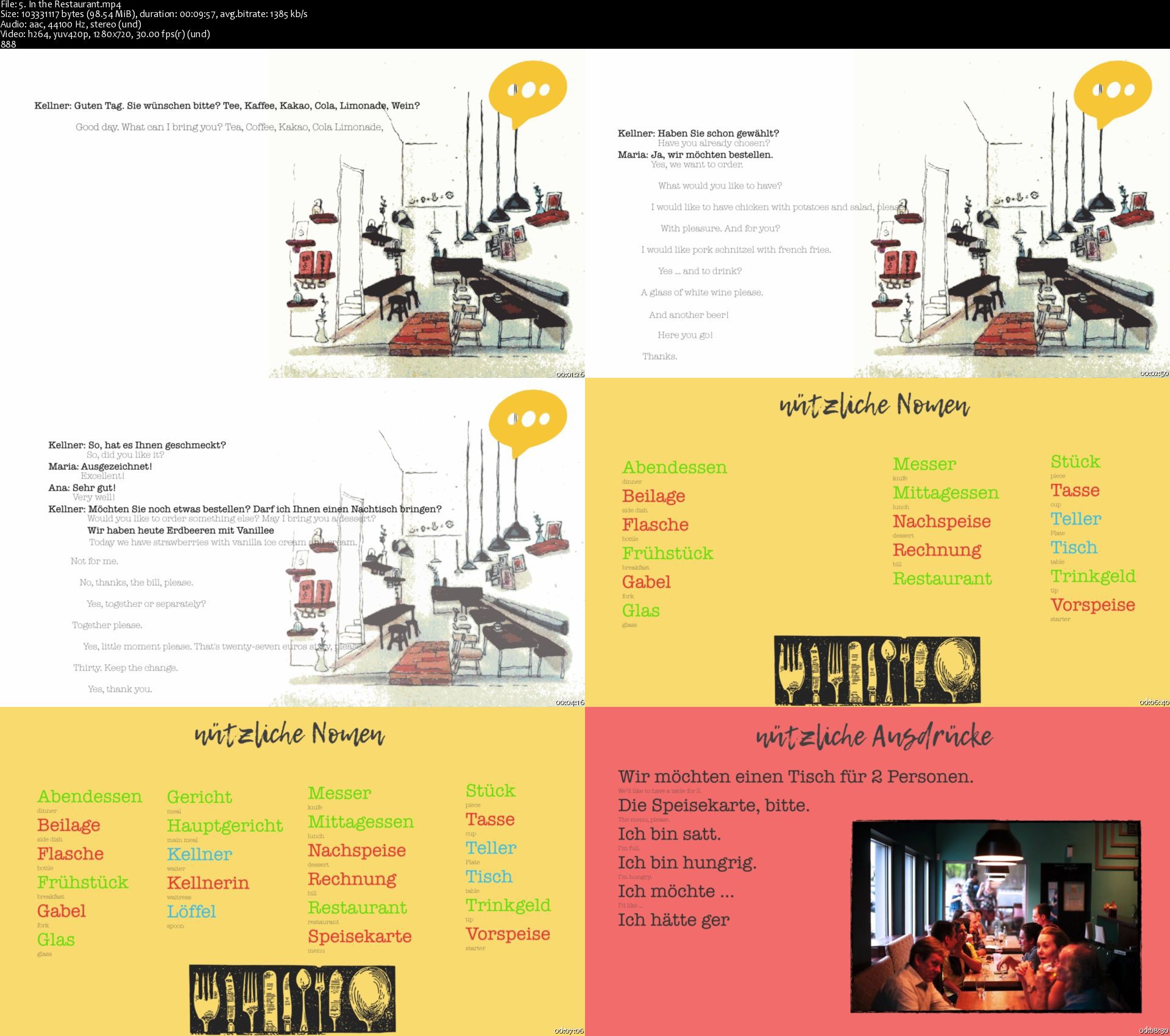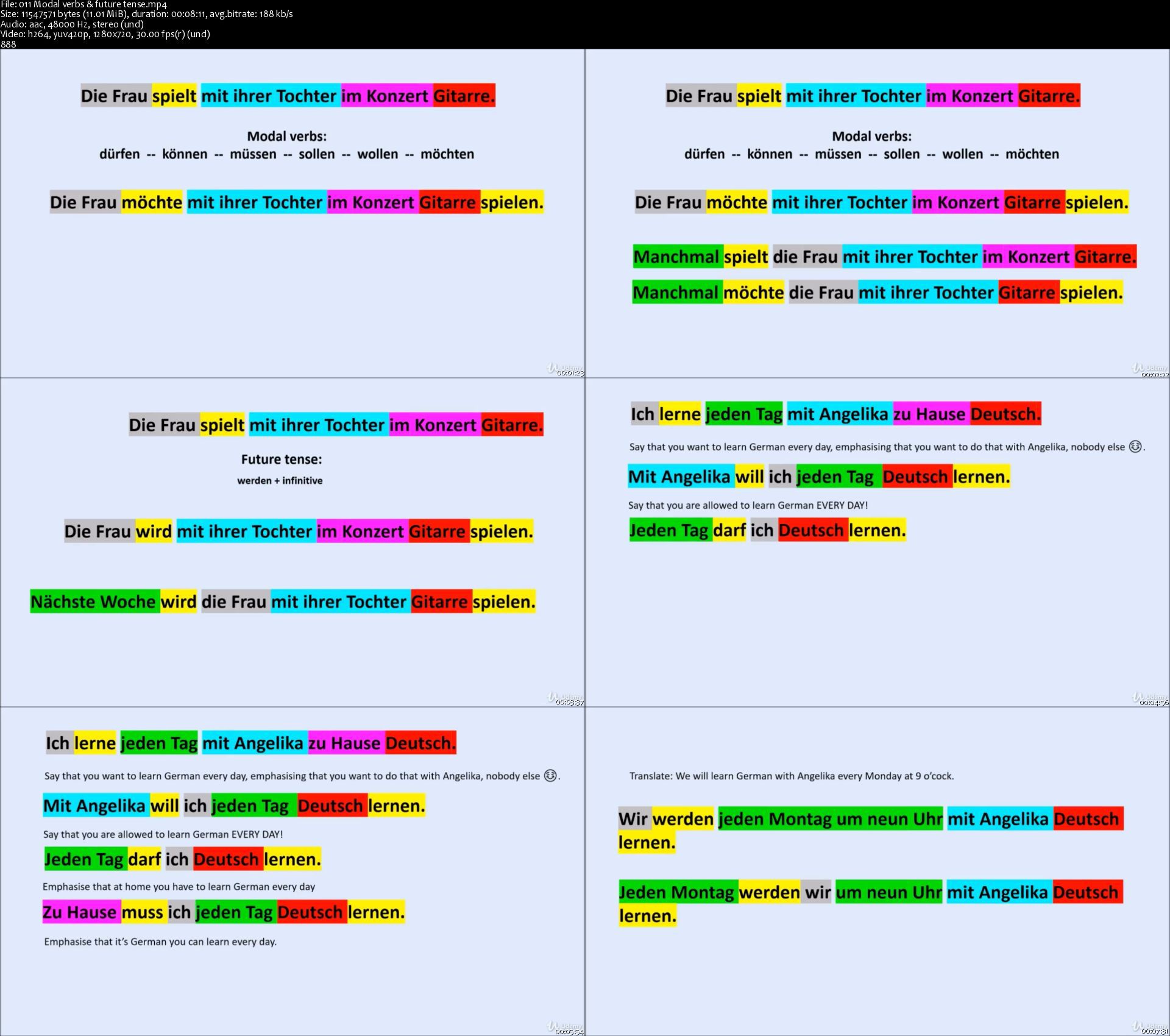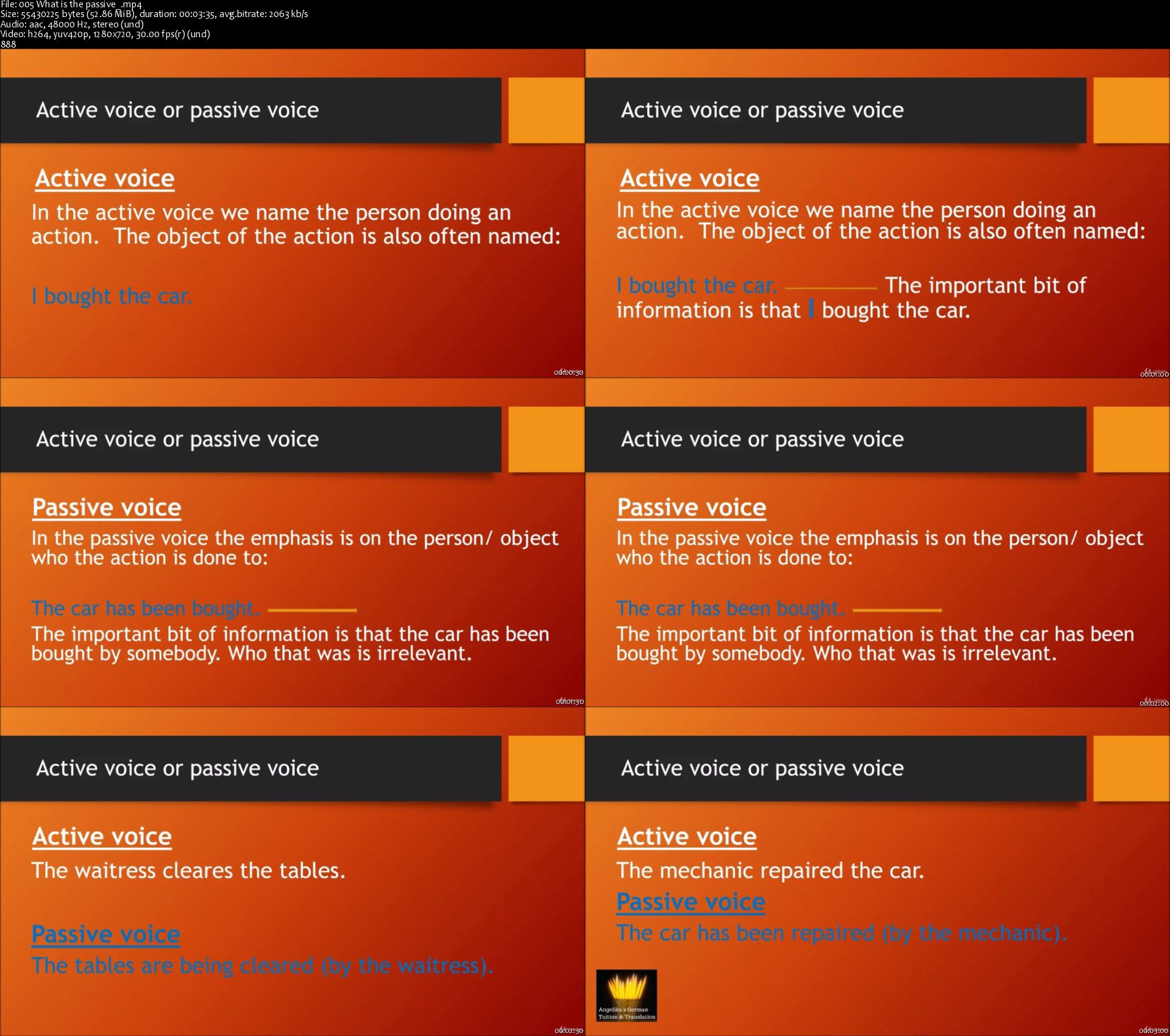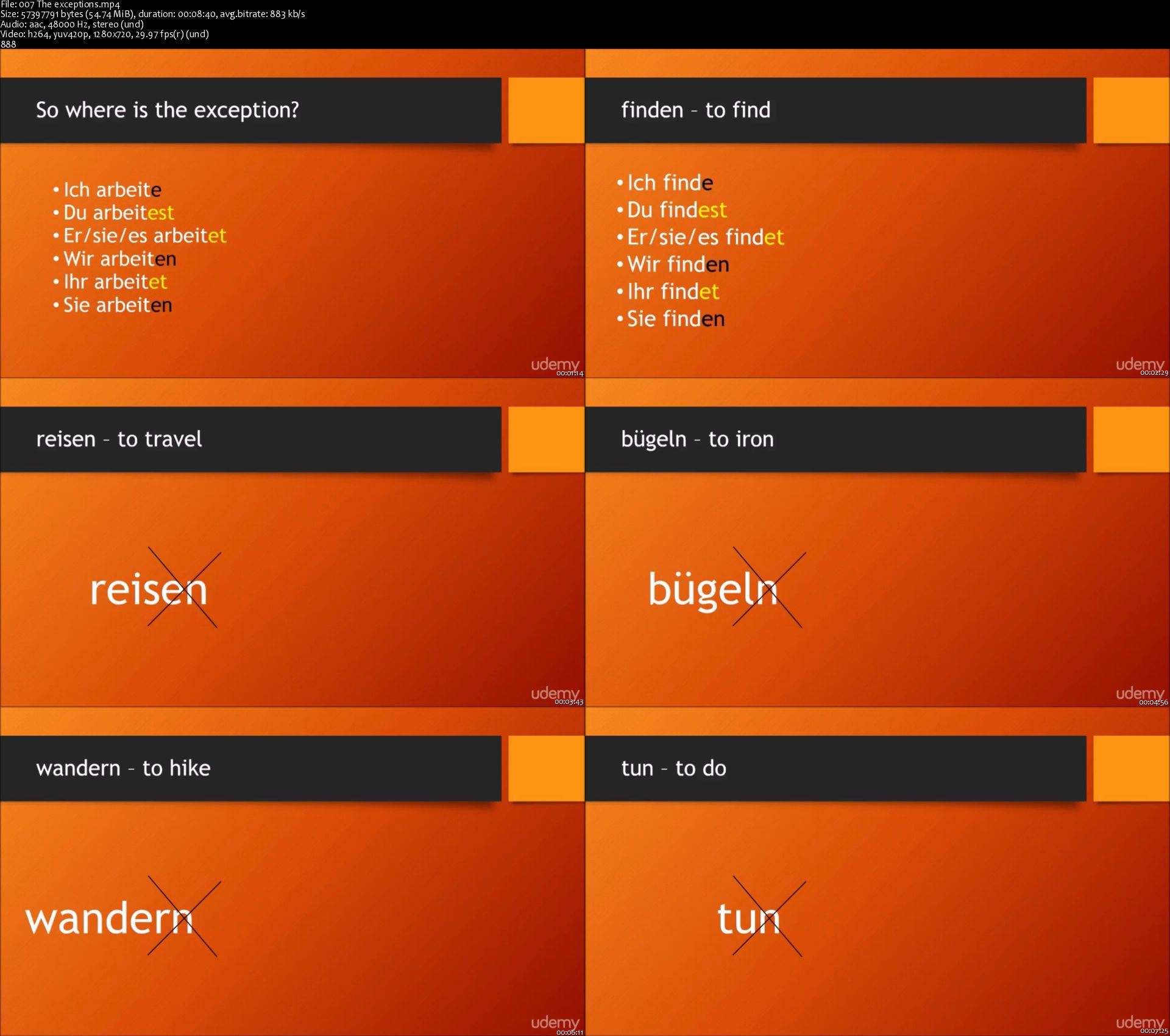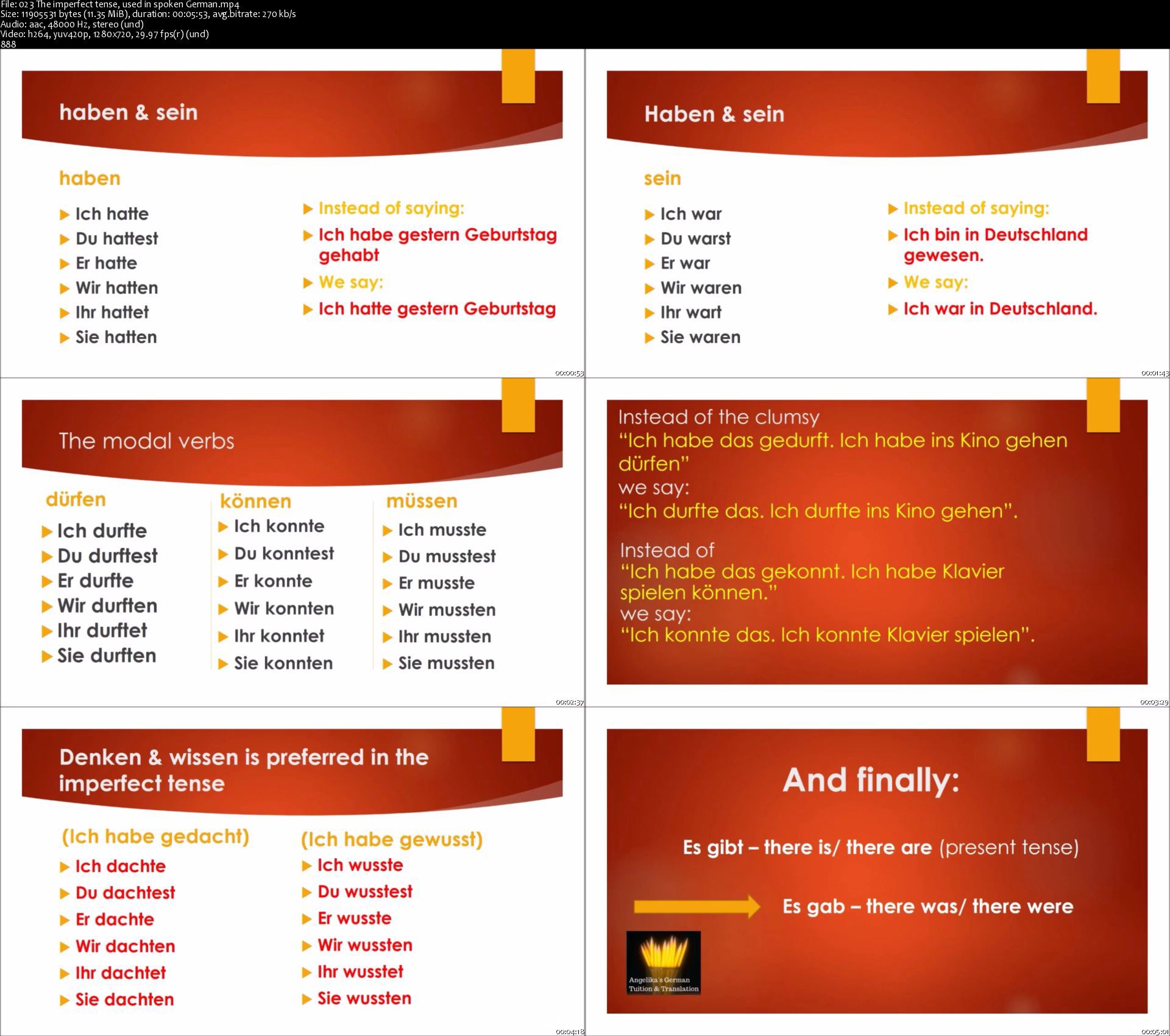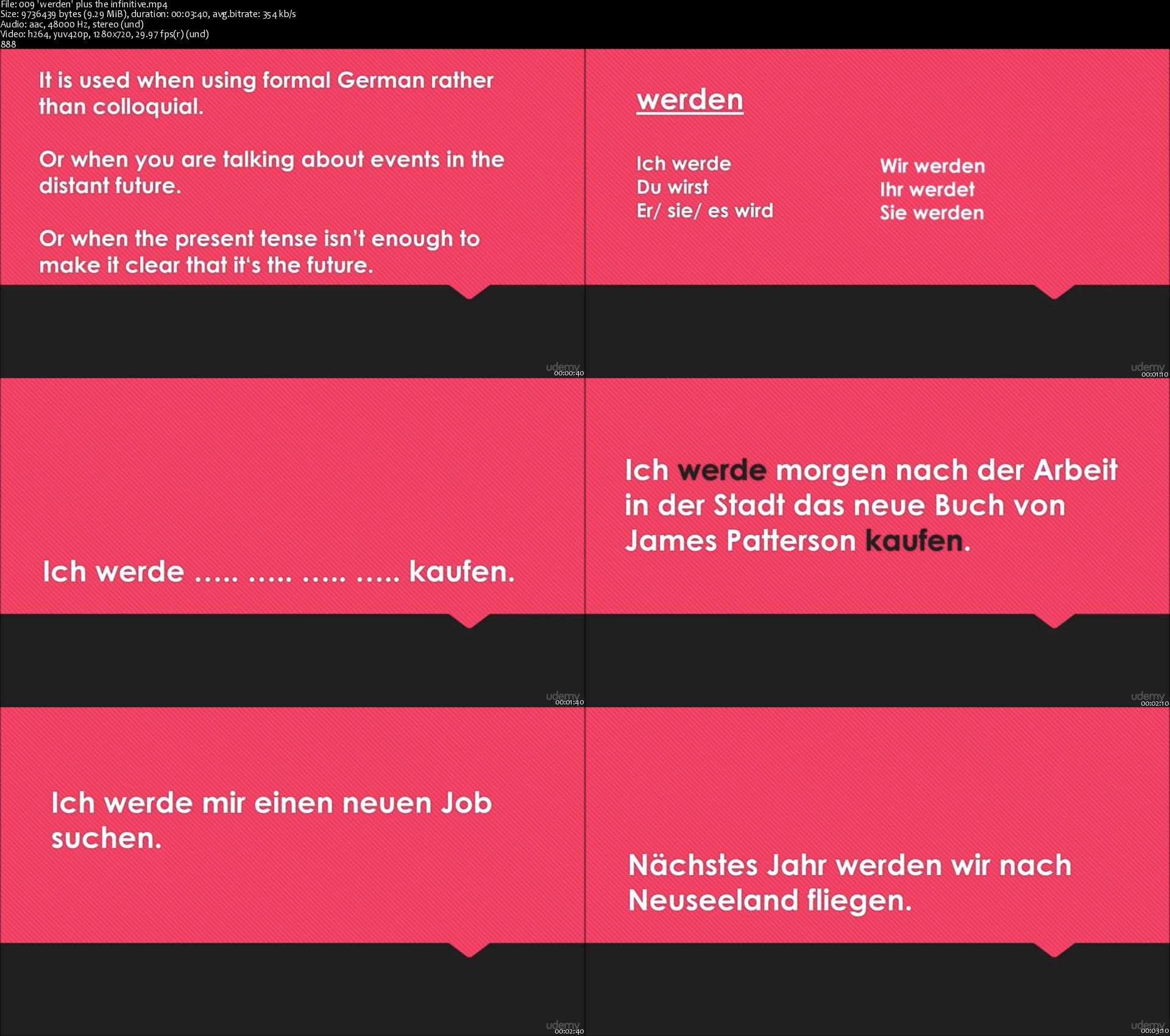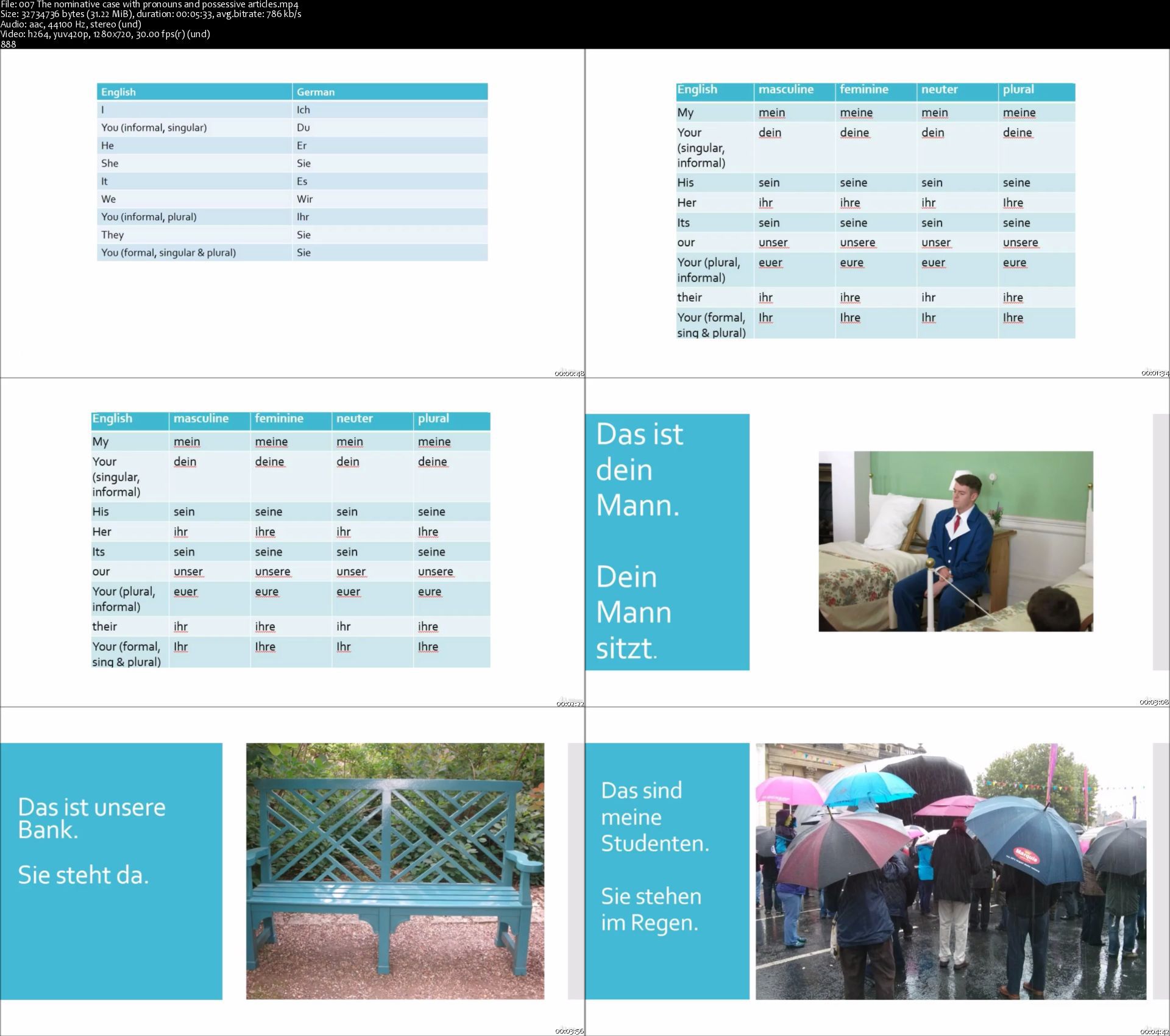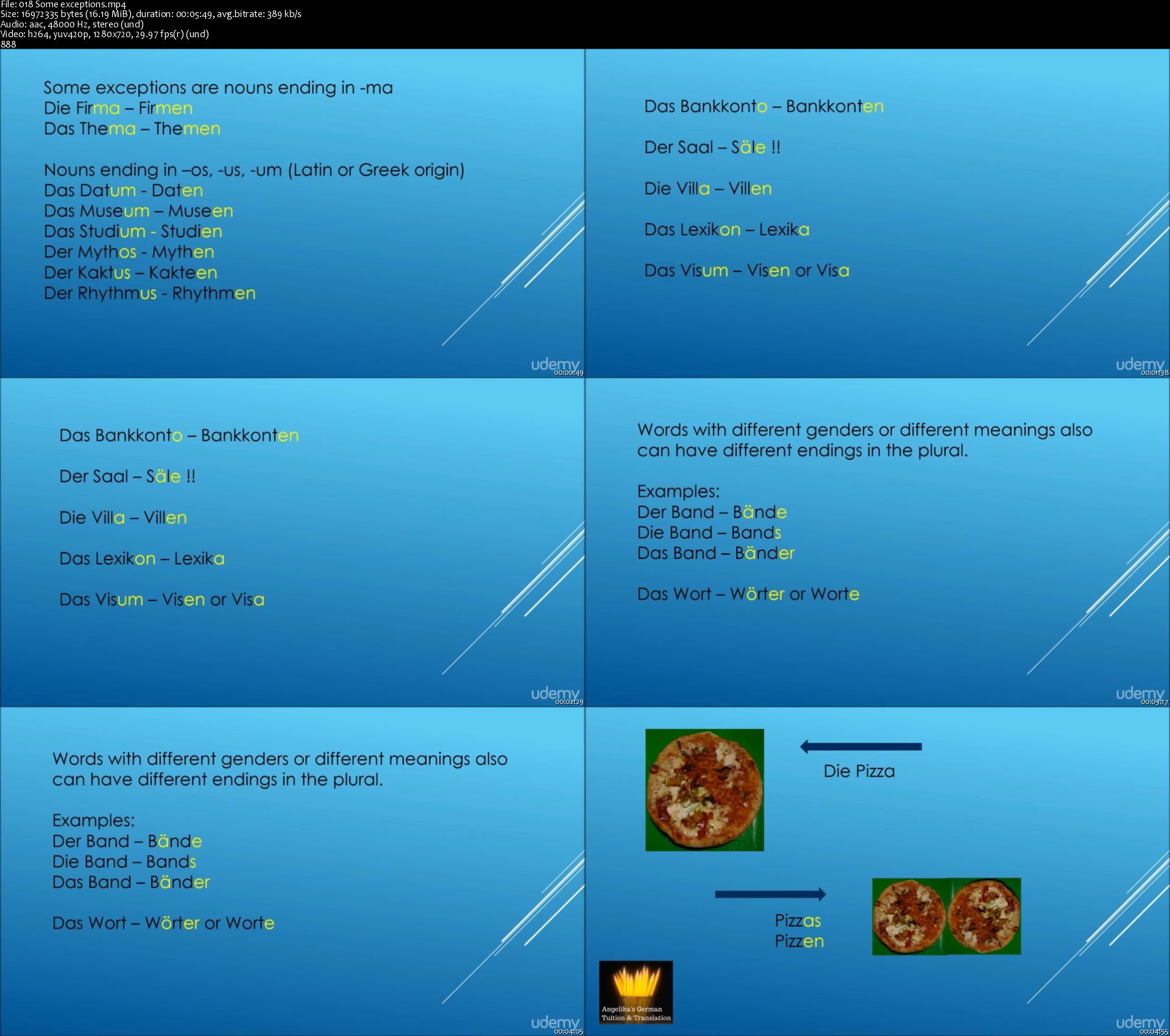German prepositions master class

German prepositions master class
MP4 | h264, 1280x720 | Lang: English | Audio: aac, 44100 Hz | 1h 30m | 680 MB
What you'll learn
German prepositions.
You learn ready to use sentences with grammar. Easier to remember and use.
See, hear and repeat. In 3 minutes per preposition you learn how to use it for life.
Requirements
Some basics.
Description
See, hear and repeat. Just like a baby learns a language. This revolutionary - yet simple and natural - teaching method works no matter what your native language is. No captions/ subtitles needed! Just three minutes per preposition and you learn to use them.
You learn phrases - not complex theory. Learning phrases mean that you can start talking immediately.
What a great way to spend the minutes you have on a bus, coffee break or when waiting a friend to arrive.
Your mind, muscles and ears learn the phrases by seeing, hearing and repeating. This is how a baby learns a language and so can you. Remember to start talking immediately. Speaking is the best (and only) way to learn. It´s not important if you say something wrong. Also babies talk a bit funny when they are learning. They learn along the way when they use language.
Some preposition take the dative case, some the accusative. And some take either one depending what you are saying. When there is movement involved (where to), you use the accusative case. When the is no movement (where), you use the dative case.
For all levels. No grammar needed. Just see, hear and repeat.
Who this course is for:
Students of German who want to learn how to use prepositions.
Do not take this course if you want to dig deeply to grammar and complex theories.
Do take this course if you want to learn fast and start using the language immediately.
Homepage
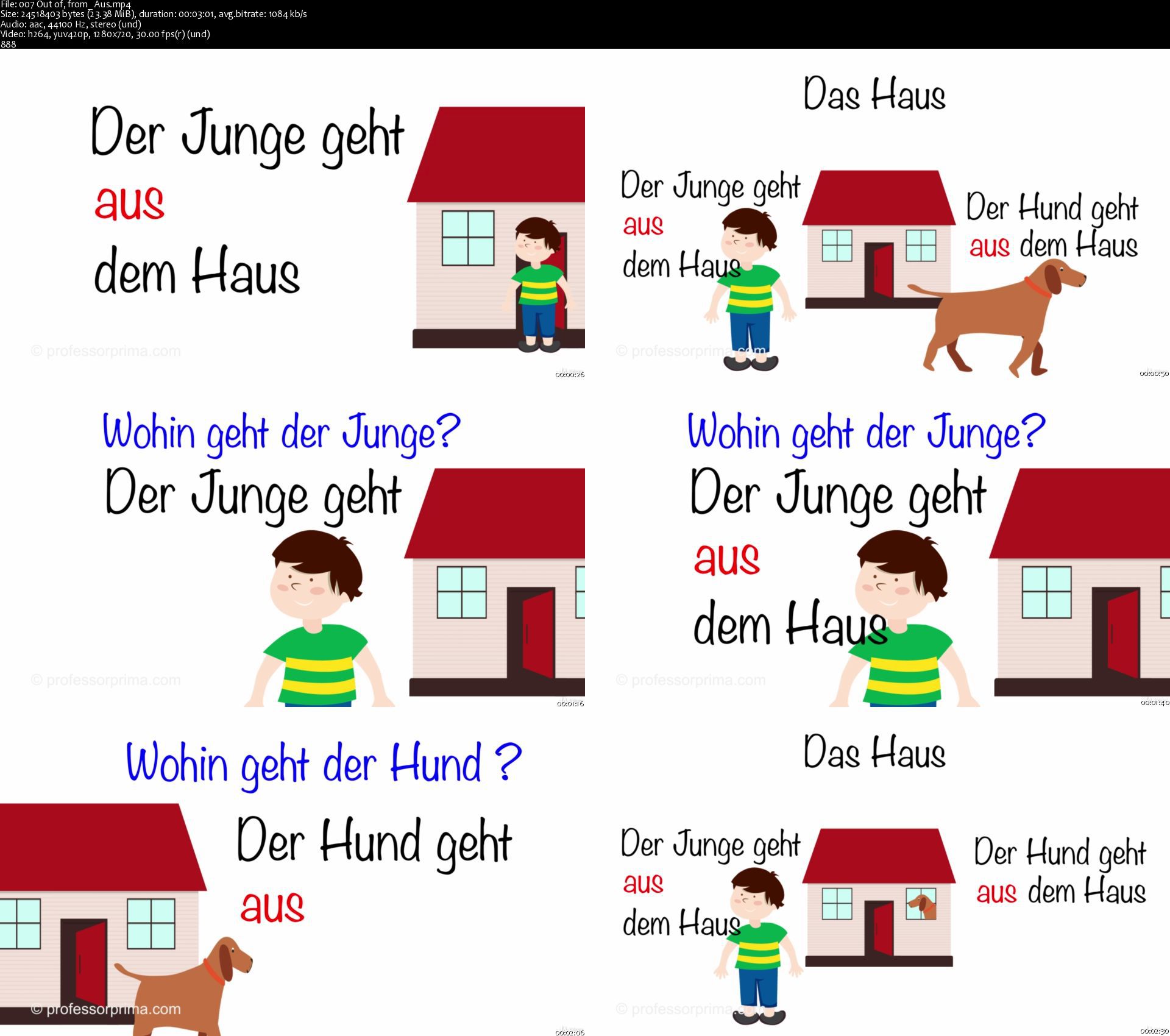

German prepositions master class
MP4 | h264, 1280x720 | Lang: English | Audio: aac, 44100 Hz | 1h 30m | 680 MB
What you'll learn
German prepositions.
You learn ready to use sentences with grammar. Easier to remember and use.
See, hear and repeat. In 3 minutes per preposition you learn how to use it for life.
Requirements
Some basics.
Description
See, hear and repeat. Just like a baby learns a language. This revolutionary - yet simple and natural - teaching method works no matter what your native language is. No captions/ subtitles needed! Just three minutes per preposition and you learn to use them.
You learn phrases - not complex theory. Learning phrases mean that you can start talking immediately.
What a great way to spend the minutes you have on a bus, coffee break or when waiting a friend to arrive.
Your mind, muscles and ears learn the phrases by seeing, hearing and repeating. This is how a baby learns a language and so can you. Remember to start talking immediately. Speaking is the best (and only) way to learn. It´s not important if you say something wrong. Also babies talk a bit funny when they are learning. They learn along the way when they use language.
Some preposition take the dative case, some the accusative. And some take either one depending what you are saying. When there is movement involved (where to), you use the accusative case. When the is no movement (where), you use the dative case.
For all levels. No grammar needed. Just see, hear and repeat.
Who this course is for:
Students of German who want to learn how to use prepositions.
Do not take this course if you want to dig deeply to grammar and complex theories.
Do take this course if you want to learn fast and start using the language immediately.
Homepage









